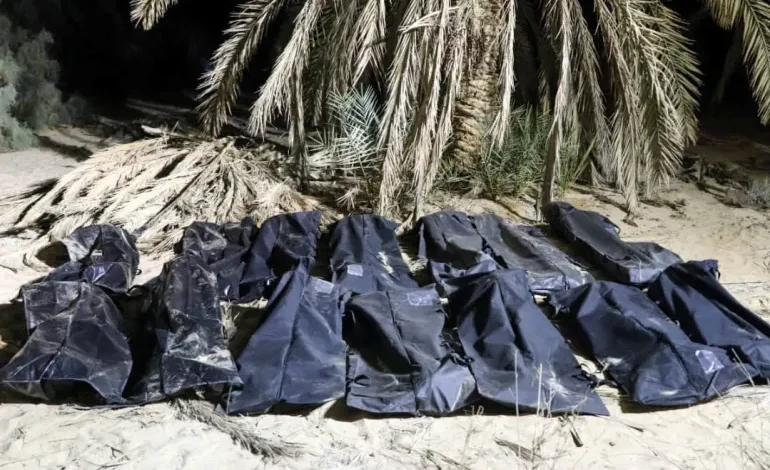Libyan authorities have uncovered two mass graves containing nearly 50 bodies in the southeastern desert city of Kufra, highlighting the perilous journey faced by migrants attempting to reach Europe through North Africa, Al Jazeera reports.
The security directorate announced on Sunday the discovery of 19 bodies in a mass grave on a farm in Kufra on Friday. The remains have been taken for autopsy to determine the cause of death.
Mohamed al-Fadeil, head of the security chamber in Kufra, reported that a second mass grave containing at least 30 bodies was found following a raid on a migrant detention centre in the city. Authorities are continuing their search of the area, as survivor accounts suggest that some 70 people were buried at the site.
Libya has become a primary transit point for migrants from Africa and the Middle East seeking to reach Europe, and the discovery of mass graves containing the bodies of asylum seekers is not unprecedented. Last year, authorities unearthed the bodies of at least 65 migrants in the Shuayrif region, south of the capital Tripoli.
The country’s instability over the past decade has created a fertile ground for human traffickers, who exploit migrants and refugees attempting to cross Libya’s borders with six neighboring nations: Chad, Niger, Sudan, Egypt, Algeria, and Tunisia.
Rights groups and United Nations agencies have consistently documented the systematic abuse of asylum seekers in Libya, including forced labor, beatings, rapes, and torture. Traffickers often extort money from families before allowing migrants to leave Libya on overcrowded and unsafe boats.
Those intercepted and returned to Libya are frequently held in government-run detention centers, where they are subjected to further abuse, including torture, rape, and extortion, according to human rights organizations and UN experts.
Libya has been plagued by chaos and conflict since the NATO-backed uprising that ousted and killed Muammar Gaddafi in 2011. The oil-rich nation has been governed for much of the past decade by rival administrations in eastern and western Libya, each supported by various armed groups and foreign governments. This instability has exacerbated the migrant crisis and enabled human traffickers to operate with impunity.








